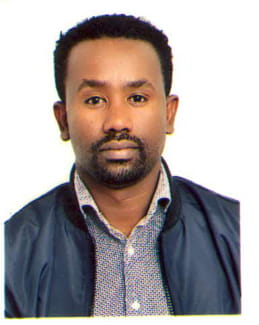National Forest Sector Development Program
Dear Readers,
I am delighted to present the National Forest Sector Development Program which is being implemented under Ethiopian Forestry Development. There are three projects namely Institutional Strengthening Forest Sector Development Programme, Catalyzing Forest Sector Development Programme and REDD+

Investment Programme – Afforestation/Reforestation Component. All the projects aim on strengthening the forest sector, establishing new productive forests through Afforestation/Reforestation (AR) activities, restoring degraded areas through an Assisted Natural Regeneration (ANR) approach, and diversifying and improving the livelihoods of local communities. Since its commencement in 2016, the program has significantly expanded its scope, initially starting its groundwork in 13 districts across 3 regions and subsequently scaling up to 63 districts spanning 6 regions.
In 2018, the program produced a 10-year roadmap of the forest sector, the National Forest Sector Development Program for Ethiopia, which outlines a strategic vision for the nation’s forest sector. The program has achieved remarkable milestones, including the establishment of over 88,167 hectares of new productive forests through AR activities. Additionally, around 1,082,883 hectares of degraded areas are undergoing restoration through the ANR approach, while 84,460 hectares of dry forests have been sustainably managed. Furthermore, a substantial 67,286 households, with 43% female representation, have benefited from alternative livelihood options, job creation, and supplementary income sources.
As part of livelihood improvement, farmers generated an additional 252,930,704 ETB in income from the sale of forest and non-forest products (logs, grass, honey, etc), seasonal job opportunities, and other sources. The program has also emphasized biodiversity conservation through the establishment of two botanical gardens and support extended to two additional botanical gardens.
Along with these achievements, the program has disseminated crucial guidelines, operational manuals, and brochures to raise awareness on various topics, such as Urban Green Infrastructure, empowering stakeholders with essential knowledge. Moreover, the program has facilitated the execution of over 20 development-oriented research projects, driving innovation and fostering knowledge exchange within the forest sector.
To support operational efficacy, the program has provided pivotal resources such as vehicles, office facilities, and field tools. Additionally, the procurement and transfer of 6 wood and 6 bamboo processing machines to beneficiaries have significantly contributed to the economic growth and empowerment of local communities.
The program’s commitment to capacity building is exemplified through specialized training encompassing participatory land use planning, nursery and post-planting management, environmental and social safeguards, and forest extension, Geo-informatics among others.
These accomplishments have been made possible through the financial supports of Sweden and Norway Governments and collaborative efforts with esteemed partners including WGCF, EBI, EEFRI, UNDP, CIFOR, and SLU, underscoring the collective commitment towards advancing the program’s objectives.
Sincerely,
Contact Address
Kibruyesfa Sisay (PhD)
Coordinator, National Forest Sector Development Program
Email: kibruyesfa.sisay@undp.org
